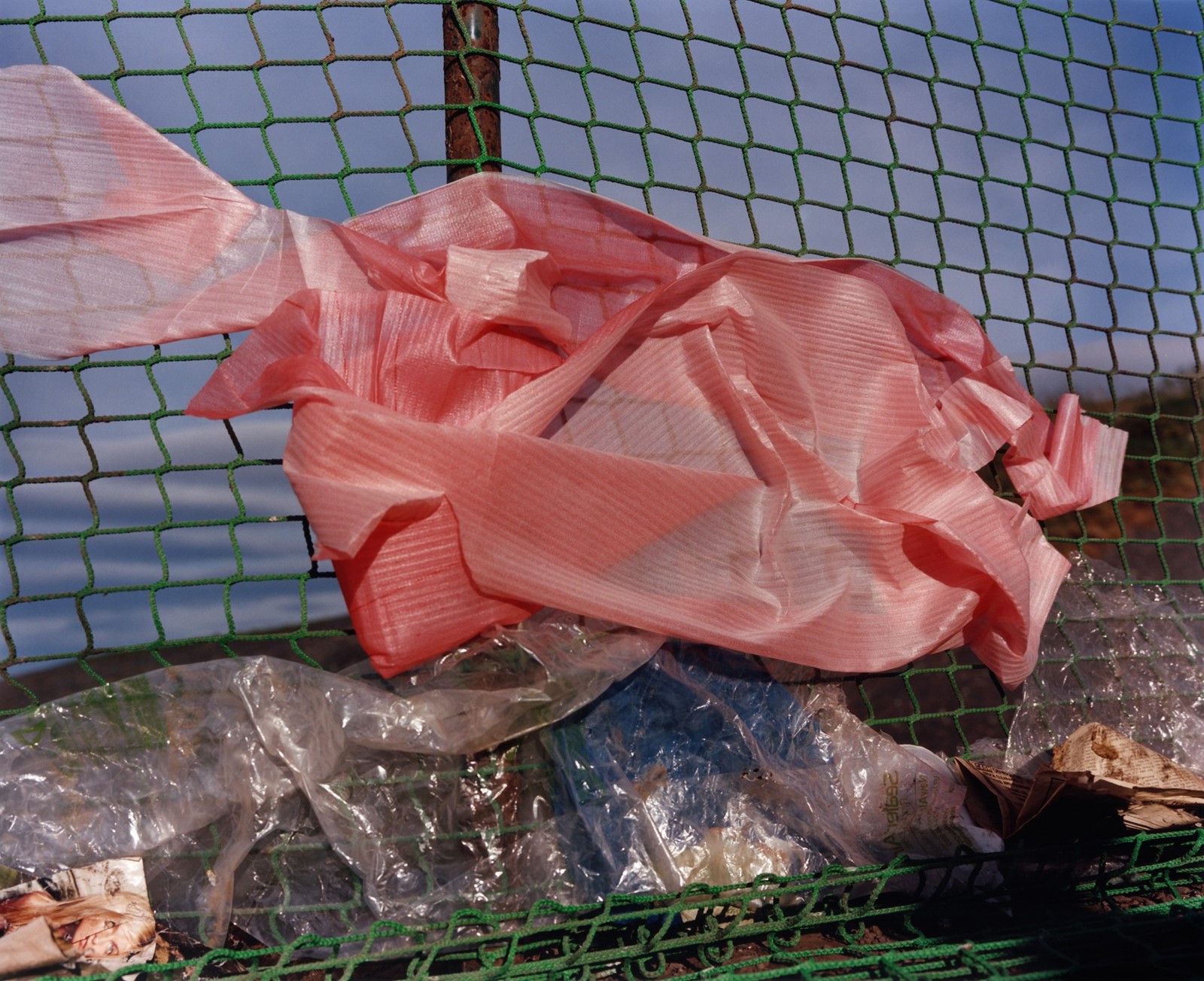You could argue that the primary role of the art gallery in contemporary culture is to recontextualise the behaviours we perpetuate unthinkingly. Only when they’re extricated from our everyday and placed front and centre in a frame can we look on our most mundane practices with fresh eyes. Through a pane of glass, we see ourselves anew.
Which fact makes Harley Weir and Wilson Oryema’s new exhibition at London’s Soft Opening gallery – itself a compact glass-fronted space in the well-trodden nucleus of London’s Piccadilly Circus tube station – a powerful, and even uncomfortable, prospect. Behind the clear panels, Weir’s beautiful and disturbing photographs of rubbish, captured as though they were painstakingly composed still life arrangements rather than haphazard representations of a troubling reality, and accompanied by poetic fragments from artist and poet Oryema, feel condemnatory. Which of course they are, in a way.
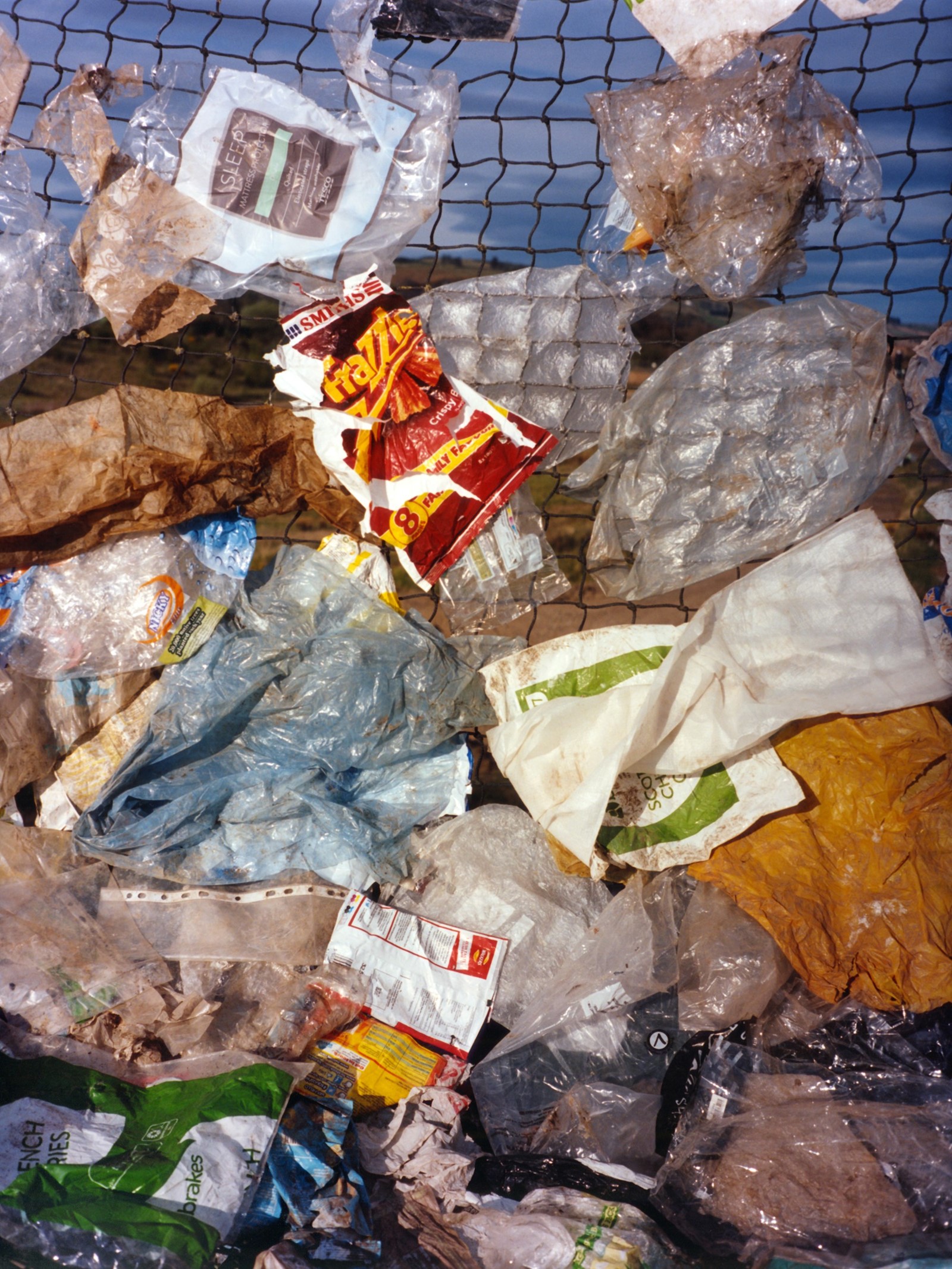
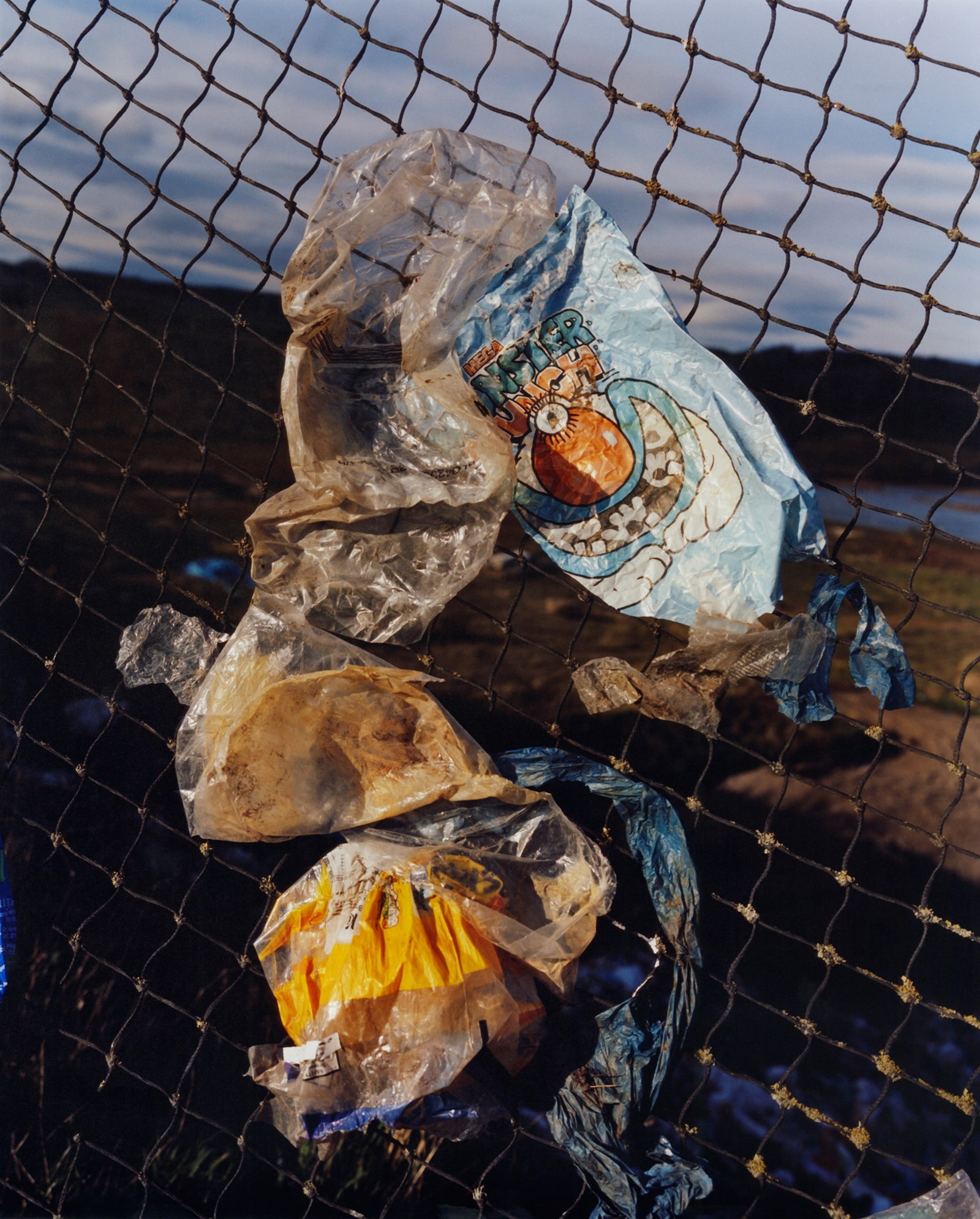
Entitled rubbish_1, the show is the result of ongoing fascinations for both Weir and for Oryema; while Weir has been photographing rubbish in the world for a number of years, Oryema recently self-published WAIT, a book of poems about our frightening appetite for consumption. “It’s a coming together of ideas to bring attention to the growing rubbish problem, and the behaviours which encourage it,” Oryema says.
“It’s a coming together of ideas to bring attention to the growing rubbish problem, and the behaviours which encourage it” – Wilson Oryema
“I’ve been brought up to be very mindful of waste, so its always been at the back of my thoughts,” Weir explains, “but it was actually moving to Peckham three years ago that reminded me to think about what I was putting in the bin, and start to change my habits.” As a means of finding her way around, she started walking through the streets at night with her mini camera as companion. “The streets were glistening with plastic and I just couldn’t stop,” she continues. “I pretty much haven’t looked up since.”
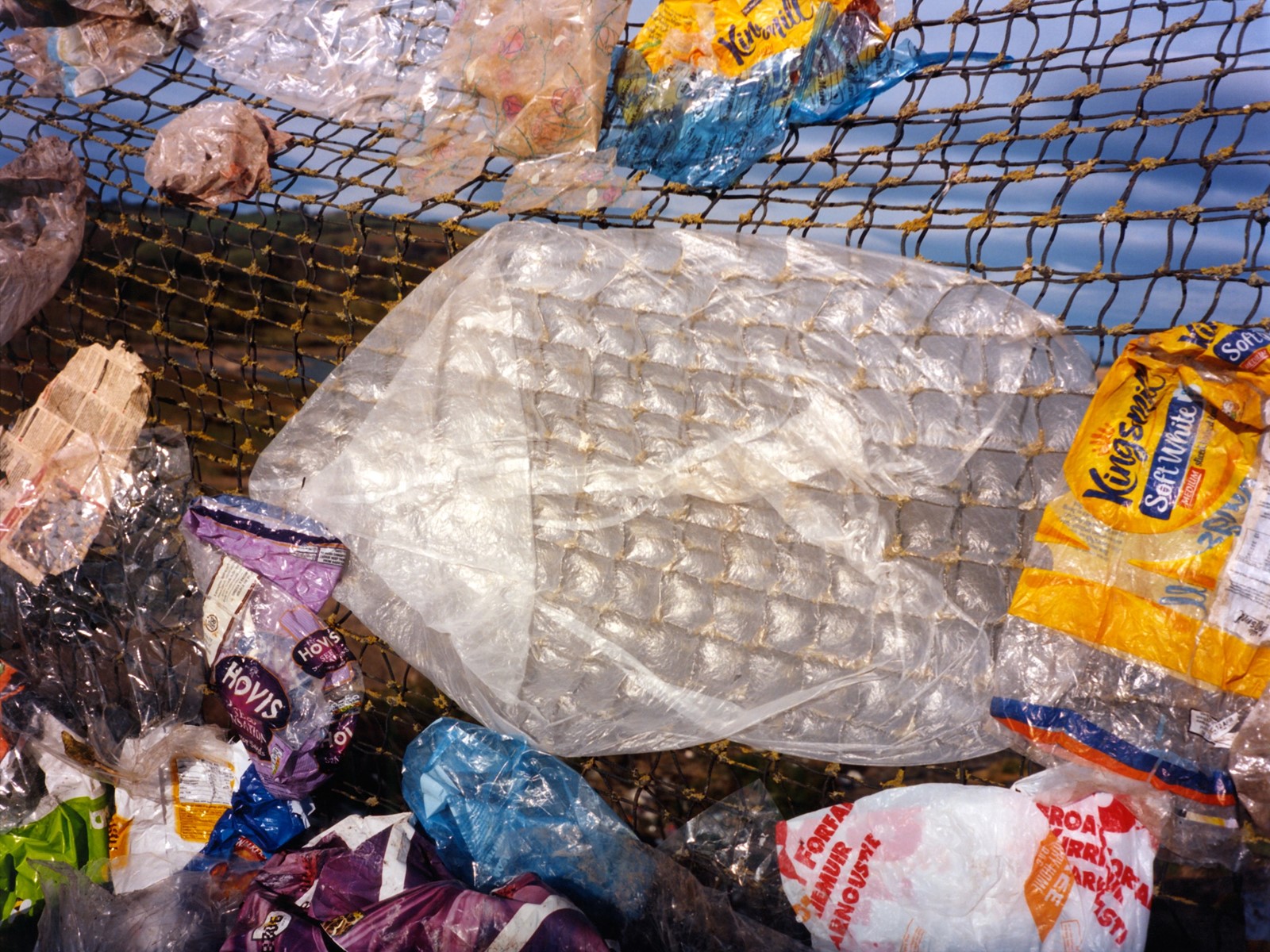
Weir created an Instagram account to house her quickly accumulating images of our quickly accumulating waste (when it was hacked and deleted, it was replaced with @rubbish_1.2), building an ever-expanding archive of our shameful disregard for the impact of our compulsion to consume. It is a jarring insight into a tiny sliver of the waste we produce – and yet it was enough to spark a new body of work, on display in the show. “Our consumption situation is terrifying and no one can even be bothered to bring their own water bottle or carrier bag for shopping,” she says. “These images are of unrecyclable plastic that float around in the wind and get stuck in nets near rubbish dumps. You can see a lot of household everyday items that people buy religiously. I am very sure that no one ever stops to think about the fact that they will outlive us all.”
“You can see a lot of household everyday items that people buy religiously. I am very sure that no ever never stops to think about the fact that they will outlive us all” – Harley Weir
But this body of work also urged her to take action. She began making steps to move towards a zero waste lifestyle – which, unattainable though the idea might first seem, is not so ridiculous a prospect. “I don’t set foot in a supermarket, unless I am coerced by friends – I shop at the greengrocers, buy in bulk or from refillable shops, where I can bring my own containers, and markets. The food I eat is so much better and I’m not forced to buy tasteless plastic-enriched produce.” Some things are hard, however. “I’m trying to tackle paper junkmail at the moment, and it seems eternal! I also cannot find a decent non-packaged toothpaste yet, but I haven’t given up.”
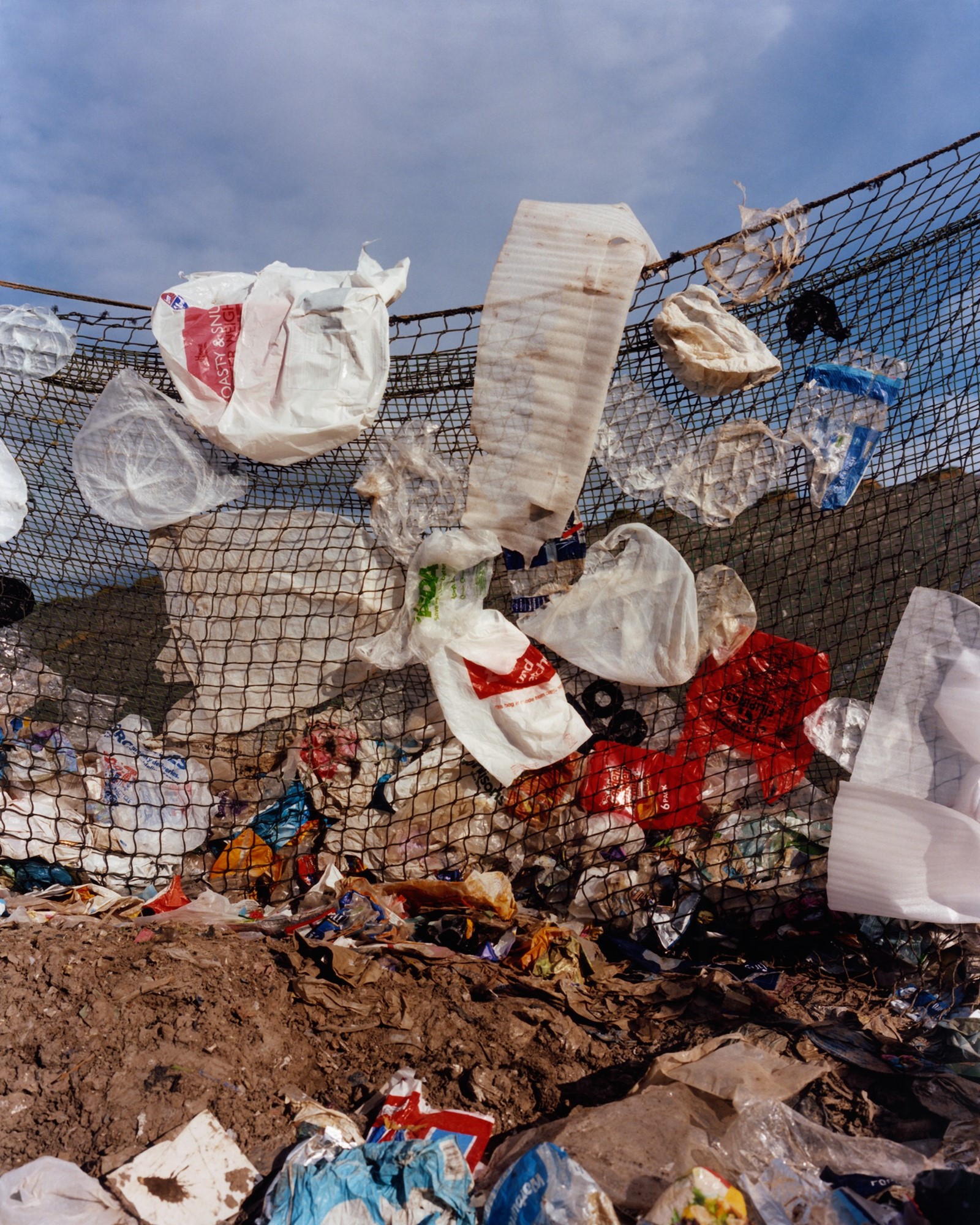
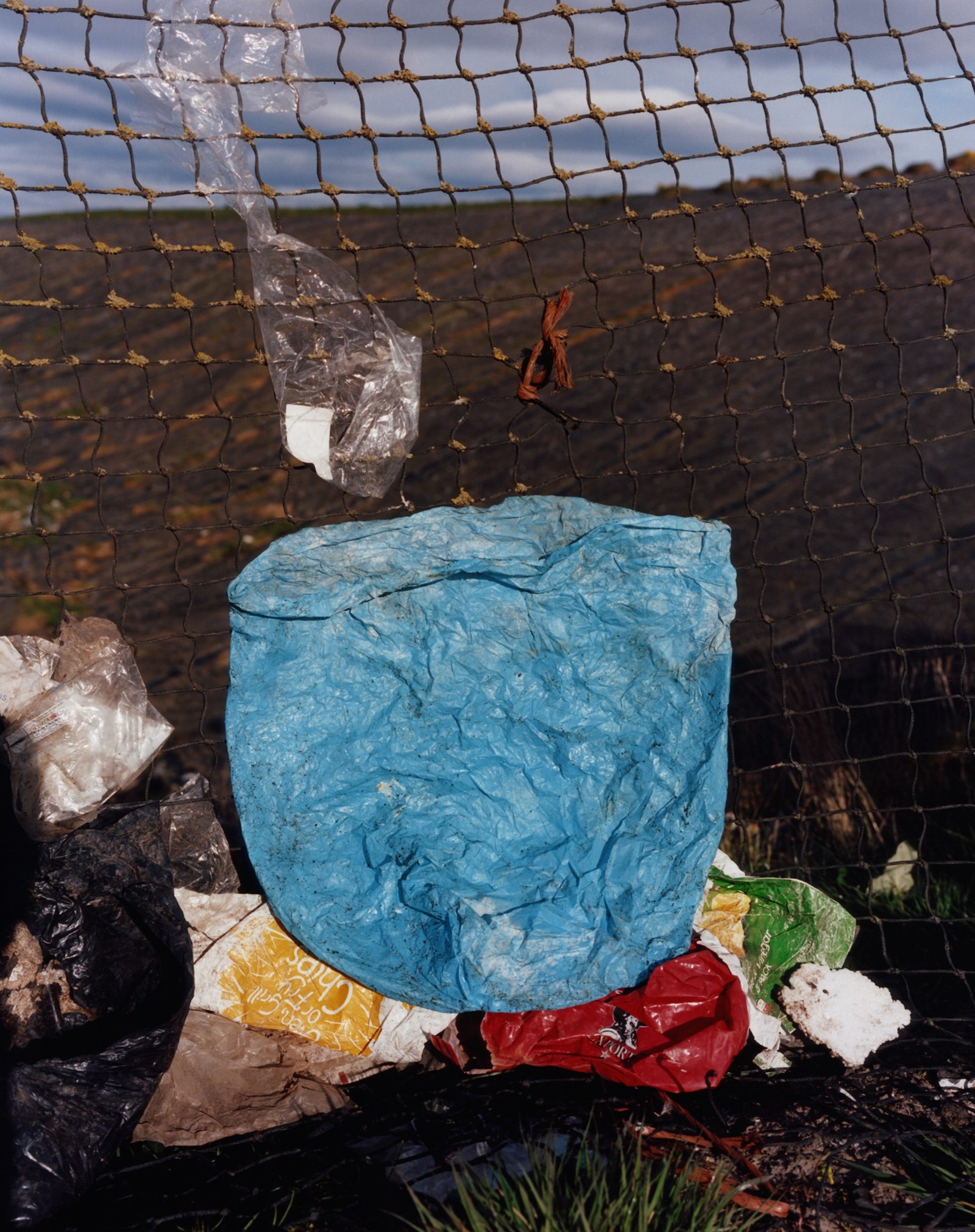
Weir is eager to disclose that she is “not perfect. By a long shot. But! I have cut down such a lot, and could never ever go back to how I was.” And a less impactful lifestyle doesn’t need to be an abstract alternative. “Just saying no to any single-use plastic might seem like it’s impossible, but it’s not, and it’s not the supermarkets who rule us. When we stop buying, they will stop selling.”
“It’s not the supermarkets who rule us. When we stop buying, they will stop selling” – Harley Weir
And in the immediate future? There’s a lot to be said for the impact of talking about waste – and a glistening, gruesome, captivating series of photographs of it, on vivid display inside a London tube station that sees footfall of 45 million passengers every year, is not a bad place to start. The images themselves are available to buy through Soft Opening – with 50% of proceeds going towards ocean charities working to prevent the pollution of our oceans. What do the pair hope viewer will take away from it? Simply “a reason to continue the conversation,” Oryema says. Weir adds: “I hope people will try and make a difference.”
rubbish_1 runs until July 1, 2018 at Soft Opening, London.
